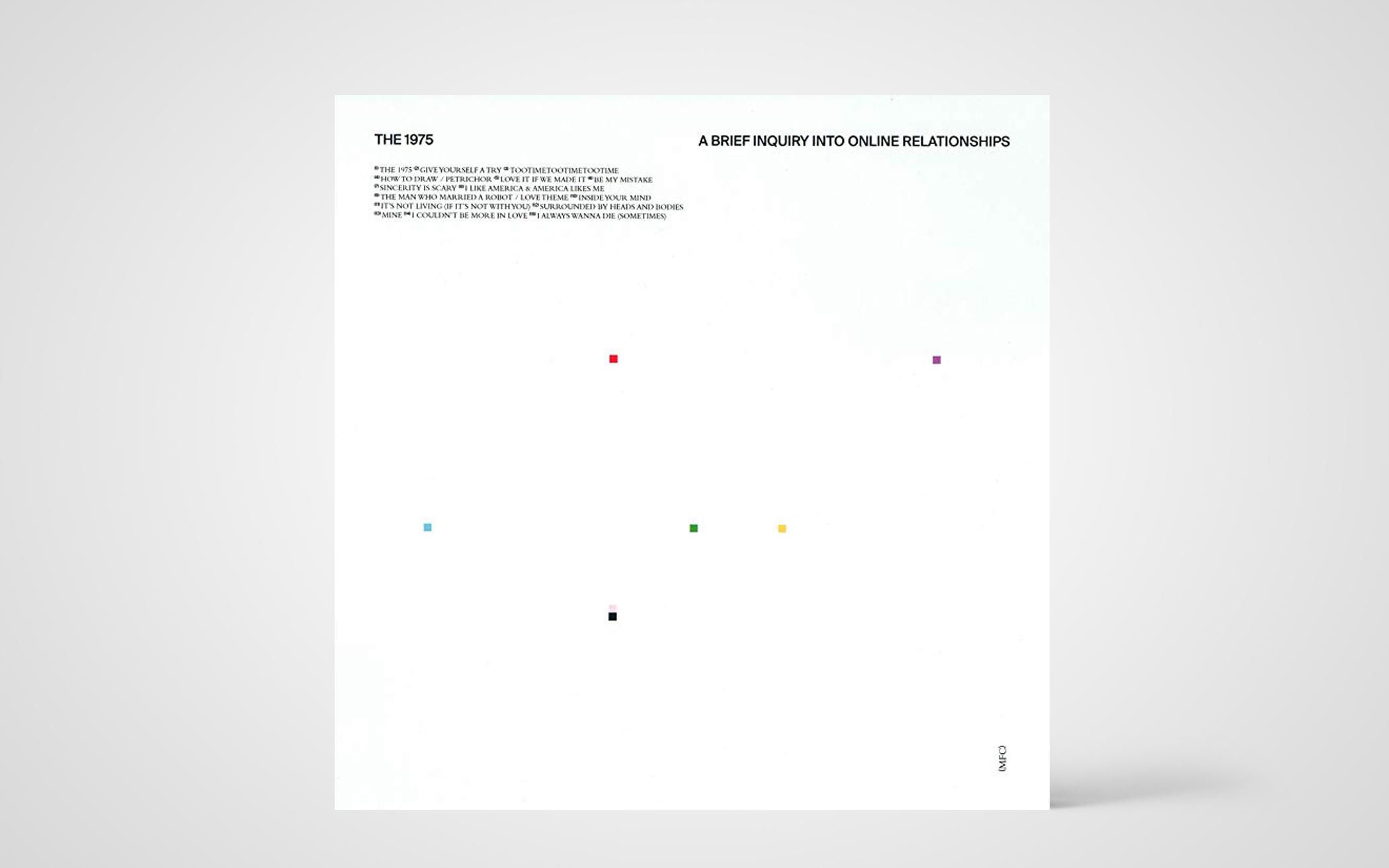The third full-length album from popular British pop band The 1975, A Brief Inquiry into Online Relationships, is extremely introspective and at the same time observational of wider societal beliefs and trends. Lead singer and principal songwriter Matty Healy is keenly aware of the current temperature of public discourse, often quoting and unpacking the significance of comments by influential leaders. Though written from an atheistic perspective, Christian millennials may find this album resonates with the common challenges of their generation, particularly around authenticity and love.
An important theme of the album is contemporary romantic love. Songs such as “TOOTIMETOOTIMETOOTIME” explore how online culture can make cheating easier in relationships, and the hurt that comes from unfaithful relationships. “The Man Who Married a Robot / Love Theme” is another song that reflects on the relationship individuals develop with the Internet, often using it to replace authentic interpersonal relationships with other humans. The jazz ballad “Mine” tells the story of a man who is not willing or able to commit to the love of his life and get married. And the song “Inside Your Mind” wonders, somewhat morbidly, what it would be like to see inside a lover’s mind.
The 1975 are not afraid to engage controversial topics, critiquing the human temptation to polarize and stop listening to others in “Love It if We Made It.” “I Like America & America Likes Me” presents stream-of-consciousness lyrics with anxiety toward guns and violence.
Matty Healy doesn’t just explore other people’s problems but looks into his own life as well with several songs about his struggle with heroin. “I Couldn’t Be More in Love,” with its incredibly raw vocals, was written about The 1975’s fans and recorded the day before he entered rehab. “It’s Not Worth Living (If It’s Not With You)” probes his relationship to heroin, and “Surrounded by Heads and Bodies” explores his relationship with someone during rehab.
Listeners should approach this album with caution. Several of the songs include challenging themes and profanity. Hope is difficult to find, though there are momentary glimpses. In an interview for Genius.com about the song “Love It if We Made It,” particularly the line “Jesus save us, modernity has failed us,” Healy says, “I want salvation just as much as the next person. I envy the faithful.” Christians may disagree with him on where to place our hope, but we can agree that there is significant suffering and injustice in the world and that humanity needs help. (Polydor Records)
About the Author
Micah van Dijk is a popular music expert who speaks and writes to help audiences understand the impact popular music has on their faith and identity. www.micahvandijk.com

